Our brains weren’t designed for the world we live in. Technology has seen more progress in the last 50 years than in the previous 5,000. The work our great grandparents used to do was a lot more similar to the work that people used to do 500 years ago than it is to the type of work we do now. We’re surrounded by different devices, always online and things move much faster these days.
No wonder why we’re always stressed out! Our environments have drastically changed in the last 50 years and our brains are still playing catch-up. How can you help your brain adapt to this new world? In order to change something you need to understand it first. I’ve always been fascinated by neuroscience, the type of science that explains how the brain works. These 10 books helped me better understand how my most valuable tool works.
The Happiness Advantage
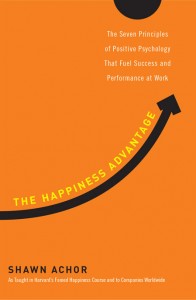
We tend to believe that if we get what we want then we can be happy. The Happiness Advantage argues that it actually goes the other way around: being happier makes you more likely to be successful. This is because when we’re happy we do better work and we’re better at communicating with other people.
Shawn Achor, the author of this book, did a great TED talk on the subject.
The Paradox of Choice
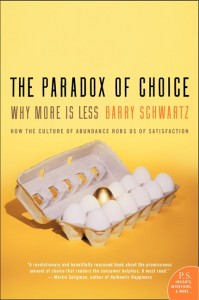
Barry Schwartz wrote a fantastic book about why too many choices can lead to unhappiness. When our grandparents wanted a pair of jeans they had a handful of choices: blue and dark blue were the color choices and there were two brands to choose from. It was easy to evaluate three or four different options and make a decision you could be happy with. But now we have literally thousands of choices and no matter what we choose, we always get the feeling that there was a better choice out there.
This doesn’t only apply to the purchase of consumer goods. We have more choices for everything we do: more universities, a wider selection of college degrees, three times as many connections as our grandparents did… It can become pretty overwhelming. Schwartz’s research provides a lot of great ideas to deal with this choice overload.
Here’s Barry’s TED video.
Brain Rules
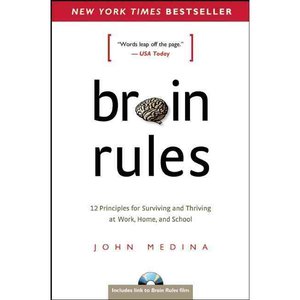
We tend to think that all the decisions we make are rational. After all, we’re the most intelligent animal on Earth, right? The truth is that we’re wired to do things a certain way and some of the decisions we make don’t make any sense.
There are hundreds of social experiments that prove this. For example, a social experiment showed that people weren’t willing to drive across town to save $100 on a $20,000 car, but they were willing to do it to save $100 on a $200 pair of shoes. The irony is that the $100 you save doesn’t know if they came from car savings or shoes savings. We do stuff like this all the time.
Brain Rules explains 12 brain principles so you can identify these patterns as they happen and make better, more rational decisions.
In Praise of Slowness
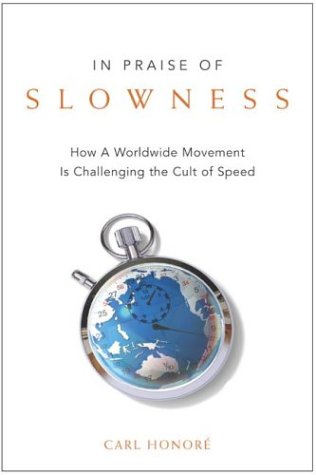
Welcome to the age of productivity! The objective of the game is to do as much as you can as fast as you can do it. The faster you work the better off you are, right? Why then is there a book called “In Praise of Slowness?” This book calls us to stop obsessing about quantity and start thinking about quality.
I found that by slowing down in my own life, I enjoy everything more and don’t get burnt out anymore. My car can go up to 120 miles an hour, but if I constantly drive it at that speed it’s only a matter of time before something breaks. I’ve learned that it’s very important for me to find the right speed that will get me to my destination without ruining the engine. That’s what this book is about: finding the right pace for you.
You Are Not So Smart
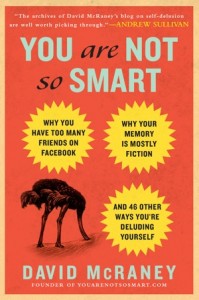
This book is a fun read. It talks about 48 things we do that don’t make any sense. After reading this book I started catching myself making a lot of irrational decisions on a daily basis.
The Misleading Mind
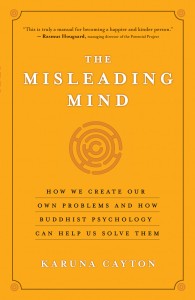
The Misleading Mind is one of the best books I’ve read in my life. After reading it I started understanding why I was worrying about everything all the time. We’re wired to put self-preservation over everything else. About 10,000 years ago humans were a part of the food chain. We were literally being eaten by other species. We had to be alert all the time.
Now the story is very different: we live in safe homes with all the comfort we need. We have electricity, hot water and access to the entire world via the Internet. But our brains haven’t changed very much and we’re constantly perceiving danger even where it doesn’t exist. This excellent book helps you understand this phenomenon and gives you practical tools to deal with it.
Dancing with Life
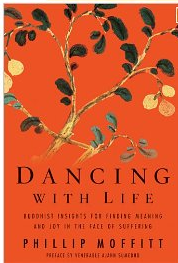
This is a Buddhist book, but it’s about philosophy and psychology, not religion. It does an amazing job at explaining dukkha, a term that is commonly translated into English as “suffering,” although I think a better translation would be “discomfort” or “dissatisfaction.”
We tend to expect things to happen a certain way and we’re uncomfortable or dissatisfied when they don’t happen that way. You want to make coffee in the morning and you realize that you’re out of coffee. You start driving to work and there’s a lot of traffic. You were planning to work on a new project but a client has an urgent deadline and you have to change your plans.
All this can cause a painful amount of discomfort if you think you have control over everything in your life. Dancing With Life invites us to accept that there’s no day without night. There’s no life without death, there’s no success without failure, there’s no love without pain. Life is impermanent: even when everything seems to be just right, it won’t last forever. It’s not about being pessimistic. It’s about embracing a universal truth: dukkha is a part of life. You can resist it and suffer or you can accept it and learn from it.
Decisive
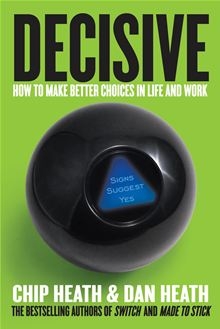
This is a great book on making decisions. It’s a very easy, fun read with a ton of practical tips to make better decisions. The authors encourage readers to consider more alternatives (as opposed to making a “yes” or “no” decision), experiment with different solutions at a small scale to see how they work, and move away from the problem to gain better perspective over it.
The Willpower Instinct
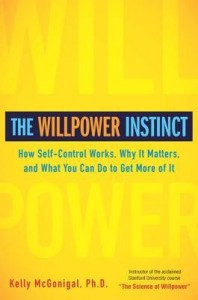
We’re convinced that if we want to change something about ourselves, a strong willpower is all we need. The problem with willpower is that we only have a limited amount of it. If everything we do feels like a lot of work, we’re doomed to fail. Instead, we need to recognize that willpower is a limited resource, and that we need to stop tempting ourselves unnecessarily.
When we want to do more of something, we need to make it easier to do. For example, if you want to work out in the mornings, leaving your workout outfit next to your bed, having breakfast ready the night before and asking your best friend to pick you up will greatly increase your chances.
Likewise, when you want to stop doing something (or do less of it), just make it more difficult to do. I removed Facebook from my phone so I wouldn’t spend so much time on it. I can still access it, but now I have to open the browser and type my email address and password. But if it were on my computer’s bookmarks and only one click away, it would take too much willpower to stop myself from being on Facebook too much.
Positive Intelligence
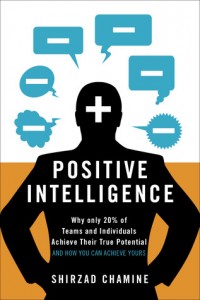
This is an amazing book that helps us distinguish positive and negative emotions, and how to deal with the latter. Take anxiety, for example. Let’s say you have a very important presentation tomorrow and you’re very anxious and stressed out. The presentation isn’t until tomorrow, and the stress and anxiety aren’t helping you. What you need now is a good night’s sleep, but these negative feelings aren’t making that possible.
Positive Intelligence helps you identify the negative emotions that are sabotaging your work and life, and it gives you very powerful tools to deal with them.

